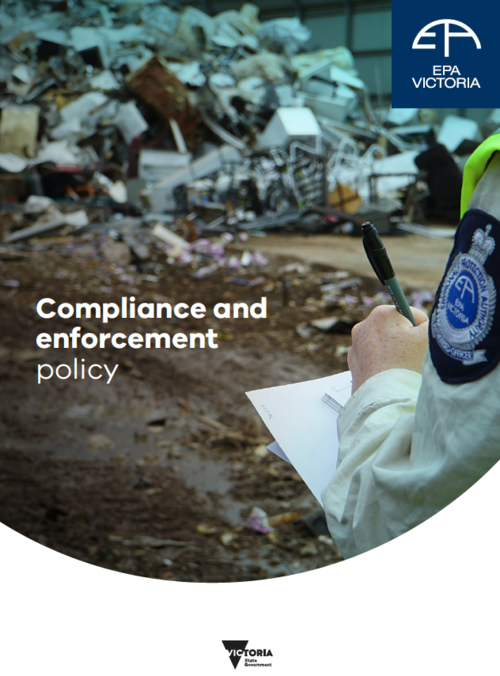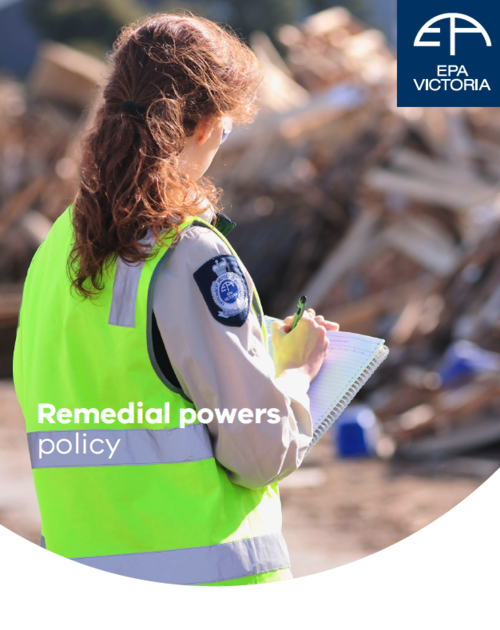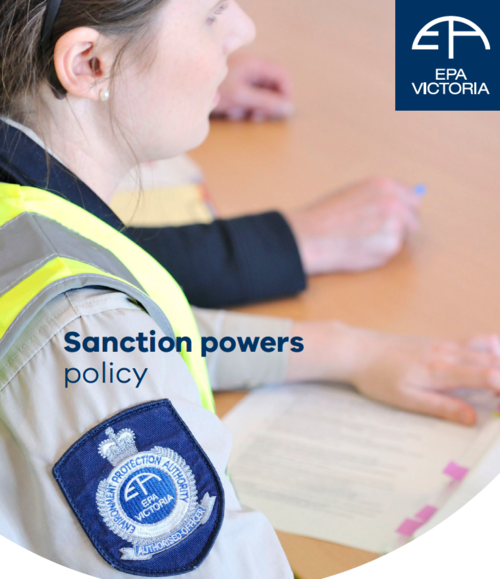Enforcement under the new Environment Protection Act 2017 (Vic)
ENFORCEMENT UNDER THE NEW ACT
The Environment Protection Act 2017 fully commenced in Victoria on 1 July 2021.
There has been a flurry of publications from EPA Victoria (EPA) in recent weeks covering a range of topics, including relevantly enforcement.
Three key policies were released on 23 June 2021:
the EPA’s Compliance & Enforcement Policy (Publication 1798.2)
the EPA’s Remedial Powers Policy (Publication 1813)
the EPA’s Sanction Powers Policy (Publication 1814)
Policy documents available from EPA Victoria’s website.
Images reproduced from EPA Victoria’s website.
Enforcement policies are relevant to understanding how the EPA would respond in the case of contravention of the new legislation. Particularly, given the significant expansion of enforcement tools now available to the EPA:
Five new types of remedial notices – improvement notice; prohibition notice; notice to investigate; environmental action notice and waste abatement notice;
Ability to re-direct notices to directors and officers and group companies, meaning that the costs of compliance with notices can be addressed to individuals personally if their corporation does not comply;
Ability to commence civil proceedings for civil penalty orders in addition to, or as an alternative to, criminal proceedings for fines and prosecutions;
Monetary benefit orders; adverse publicity orders; general restoration and prevention orders; restorative project orders; environment audit orders; Court orders requiring specific actions
Warnings;
Directions from Authorised Officers;
Infringement notices;
suspension and revocation of a permission; and
enforceable undertakings.
Clients should familiarise themselves with the policies and reach out if you have any concerns about compliance and governance or liaising with the EPA.
Particular care should be taken with regard to remedial notices - so always seek independent legal advice on these if received.
I have been working with clients and environmental consultants to help prepare clients for the changes brought about by the new legislation. If you would like to discuss any of the changes or what your business should do to transition, please don’t hesitate to contact me.
The Legal Stuff
Environment Express posts aim to provide high-level and thought-provoking information about contemporary environmental law issues.
All the information in this article and on this website and any downloads are intended only to provide a summary and general overview on matters of interest. They are for general educational purposes only.
The information is not intended to be comprehensive nor does it constitute legal advice, strategic advice or consulting advice. It does not establish a lawyer - client relationship.
If you are interested in any of the information, please always seek specific advice on your circumstances from a suitably qualified legal advisor.
Whilst attempts have been made to ensure that the content is current at date of publication, Gabrielle Guthrie and Guthrie Legal do not guarantee its currency. Laws and contemporary practices change over time, including as a result of case law.
You should always seek independent legal or other professional advice on specific cases and before acting or relying on any of the content.
© Gabrielle Guthrie and Guthrie Legal 2021
Please contact us for permission if you wish to reproduce any of the content on this website.
Liability limited by a scheme approved under Professional Standards Legislation



